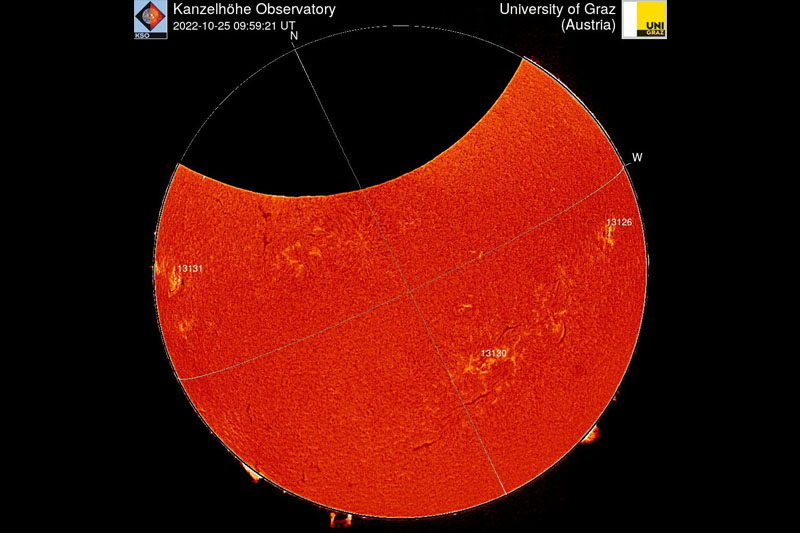Am 25.10.2022 fand eine partielle Sonnenfinsternis statt. Bei Traumwetter boten Studierende und das Team des Fachbereiches für Astrophysik der Universität Graz hierzu am Vorplatz zum Universitätshauptgebäude Beobachtungen mit speziellen Sonnenfinsternisbrillen als auch einem Teleskop an. Es wurden über 200 Besucher gezählt.
Thursday, 03 November 2022

